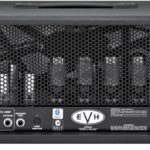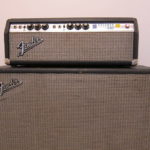You want to start playing the guitar, or maybe you’re thinking about gifting one to a friend, significant other, or one of your children.
When you start considering your options you learn that there are acoustic and electro-acoustic guitars. Things start getting a bit more complicated.
You start to wonder: What would be the best option for a beginner? What are the main differences between them? Could I go wrong with any of them? Among many other things.
Don’t worry, I’m here to help you out.
If you just want a quick answer about this, here it is:
An acoustic guitar will be better for a beginner because they are cheaper, they are simpler, and it could be turned into an electro-acoustic at any point in the future. Electro-acoustics are more expensive and although they sound like an acoustic unplugged, there’s no point in paying the higher price tag.
If you want to dive a bit deeper into the subject, in this article I will talk about the main differences between these 2 kinds of guitars, and then I will answer the most common questions about acoustic and electro-acoustic guitars.
I will also give you reasons to choose either of them so you can pick based on your necessities.
Are you ready to get started?
Let’s go!
The main difference between acoustic and electro-acoustic guitars
First things first, you should know what sets these 2 kinds of guitars apart. It’s pretty simple, don’t worry:
The main difference between an acoustic guitar and an electro-acoustic is that the latter has a built-in pickup that allows it to be plugged into an amplifier or sound system and a preamp that lets you control volume and EQ. In every other aspect than that, they are identical.
Acoustic guitars don’t have any electronics inside, however, this doesn’t mean that they couldn’t be amplified in any way. More about this later.
Do electro-acoustic guitars sound well unplugged?
An electro-acoustic guitar will sound exactly the same as a normal acoustic when unplugged, comparing between same size, body construction, and other variables. The electronics inside it have no effect on its tone or playability whatsoever.
Of course, if an electro-acoustic has a reduced body size or different features that reduce its resonance and it’s more geared towards being played through an amp, it will not sound as good as an acoustic intended to sound without amplification.
There are many different models, and some are intended for a sole purpose. You should check and ask before deciding, based on the use you intend to give to the instrument.
Do I need an amp to play an electro-acoustic guitar?
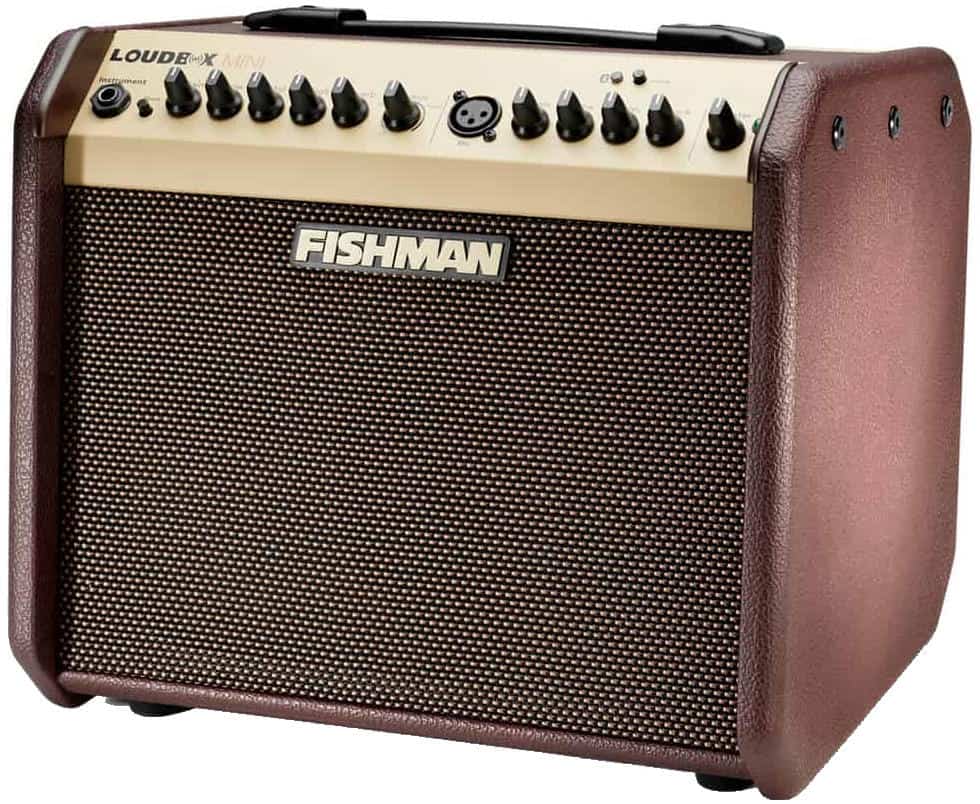
You don’t exclusively need an amp to play an electro-acoustic guitar. You can play it unplugged, and it will sound like a normal acoustic (if it’s not a specific model designed to sound good only through an amp). You can also plug it directly into a console or preamp to be recorded or amplified.
Again, there are many different models, and some might be intended to be played almost exclusively with an amp. However, the rule of thumb is that if it looks like a normal acoustic, it will sound alright without amplification.
Which is better for a beginner an acoustic or an electro-acoustic guitar?
In my opinion, there’s not a final answer to this question. It will depend on the needs and prospects of the specific beginner.
If the beginner just wants to play guitar as a hobby, and play at home, an acoustic will be all it will ever need. If they intend on playing live in the future, or rehearse with a band at high volumes, an electro-acoustic will surely be a better fit.
However, my opinion is that considering that electro-acoustics are more expensive, you could get a better acoustic instrument for the same price.
If further down the road you want to record some songs, or even play amplified, there are options to “electrify” a simple acoustic guitar.
3 reasons to get an acoustic guitar

So far I just talked about technical differences and my opinion about both kinds of guitars. Now it’s time to give you some reasons to pick one over the other.
Here are my 3 reasons to get an acoustic guitar:
Cheaper
At the same construction quality level, an acoustic guitar will be cheaper than an electro-acoustic, simply because you are not paying for a pickup and a preamp as you would in the case of an acoustic-electric.
Simpler
When you’re just starting out the electronics of an electro-acoustic might confuse you, and you might end up not even using them. Of course, you could always play it unplugged, but what’s the point then?
It can be modded to be amplified in the future
As with many things in life, all could be fixed. If a few months from now you decide that you need the features of an electro-acoustic, there are things to do about it. More on this topic later.
3 reasons to get an electro-acoustic guitar
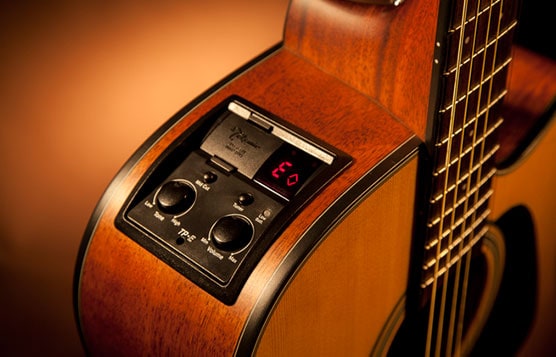
On the other hand, I wouldn’t discard the idea of getting an electro-acoustic just yet. There are some upsides with these kinds of guitars
Here are my 3 reasons to get an electro-acoustic guitar:
Sound versatility
An electro-acoustic will have a built-in EQ system that would allow you to tweak your tone when playing through an amplifier. Apart from this, the option to play through an amp will give you lots of other opportunities to modify the guitar’s tone.
For instance, you could add effect pedals to your signal chain, or even choose between different amps in your search for the perfect sound.
Easier to record
If you are working on a demo or just enjoy recording yourself, you could just plug in your electro-acoustic to your recording interface. The tone would not be optimal, it will sound better if you pick it up or mix it with a microphone recording, but it would be very practical.
Ability to play with a band or in a venue
An acoustic would not cut it without amplification in a rehearsal room. When playing with amplified musicians or drummers, an electro-acoustic would be the easier way out. You can plug it into the house speakers or an amp and you’re done.
Which is better for you: acoustic or electro-acoustic?
Taking into consideration what I said before, you would have to decide for yourself.
Here in GearAficionado, I don’t like making the choices for you. I always encourage my readers to try out the gear and look for what better resonates with them.
What I could give you is my insights into which I think different players would prefer:
- If you are on a budget and just want to learn the guitar, get an acoustic
- If you intend to play live, with a drummer or electric instruments, look for an electro-acoustic
- If you don’t like thinking about a whole rig or prefer simpler instruments, try with an acoustic
- If you enjoy tweaking your sound and are likely to experiment with effects, go for an electro-acoustic
- If you are not sure if you’re gonna play with other musicians in a few months, pick up an acoustic
- If you like to record quick ideas or boilerplates of your songs, an electro-acoustic might work out for you
What kind of acoustic guitar should a beginner get?

The kind that is cheaper, better sounding, and better looking.
All jokes aside, a beginner should focus on convenience. There will be time in the future to further refine your pick. Guitars are not forever, and at the beginner level, there is a big used market in which you can trade.
However, to not completely dodge the question, I will say that there are many kinds, shapes, and construction types for acoustic guitars.
The dreadnought is the most common form of all acoustics. This is an acoustic guitar sub-type, and not a brand or particular model. It will be the most usual pick for a beginner, and the most available shape at different price and quality levels.
Another feature to take into consideration is the cutaway.
The cutaway is an indentation in the top part of the body of a guitar, made with the purpose of giving the player an easier reach of the upper frets of the instrument. It affects the sound, making it a bit more treble present and with a bit less volume.
The easiest way to decide about getting a cutaway guitar or not is putting into consideration how often you will be playing in those higher frets.
As a beginner, it would be not that easy to predict, but you can think about the music you intend on playing in the future. Do you see yourself playing solos or would you stay within the first 5 frets playing chords?
If your answer is the second, you would probably not need a cutaway. However, it will not make a big difference for you to have one.
My honest advice? Pick the guitar that looks better for you.
Can a standard acoustic guitar be amplified?
An acoustic guitar can be amplified in 2 ways. You could point a microphone into the sound hole and send the signal to a PA system or you could get a sound hole pickup or even a piezo pickup system with a preamp such as those electro-acoustic instruments have.
With any of these setups, you would be able to have almost the same functionalities as with an electro-acoustic, if not the same.
You will not have volume and EQ controls on the guitar with the microphone and sound hole pickup options, but you will do if you choose the piezo system with a preamp.
However, this last one will require some professional work on your guitar.
My choice is the sound hole pickup since it’s very easy to install and it’s a passive system. This means that it doesn’t require any batteries or anything extra to work.
You will have a pickup that fits perfectly in the hole of your guitar and that has a cable that you will plug into your amplification system.
It’s easy and convenient.
If you want to know more about how to amplify your acoustic guitar, you should check out this other article by clicking on the link.
Can you plug an electro-acoustic into a guitar amp?
People usually think of electro-acoustics going through a PA system and out the house speakers, but you can actually, for sure, plug them into any guitar amp. You could also hook it up to your computer through an interface or into other kinds of amps, such as keyboard amps for instance.
In short, electro-acoustics can be plugged into anything you would plug into an electric guitar. Their signal is pretty similar, although they sound completely different.
Does an electro-acoustic guitar sound the same through an amplifier?
No, definitely not. An electro-acoustic will sound exactly like an acoustic guitar when played unplugged, however, its tone when sounding through an amplification system will be completely different.
This is because of how the pickups work. They cannot pick the full spectrum of frequencies that you hear acoustically, because many of them are a natural result of how the guitar body resonates.
Many beginners will feel disappointed when they first hear their electro-acoustic through an amp since it will sound lifeless and flat for many. This is a compromise that these instruments make to favor their convenience.
Going back to what I said before, this is just a feature and not a drawback. Remember you could always use effects on your sound, or even pick up the acoustic tone you hear with a microphone.
Electro-acoustics just give you more options.
Do electro-acoustic guitars need batteries?
Electro-acoustic guitars need batteries to be played plugged into an amp. Of course, to play acoustically you won’t need to have batteries inserted. These batteries are needed for the pickups and preamp system they have built-in to work and generate an electric signal that could be amplified.
The alternative of passive pickups that you could insert into any acoustic guitar’s sound hole does not need batteries and works with electromagnetism such as traditional electric guitar pickups.
Does an electro-acoustic guitar sound the same as an acoustic when unplugged?
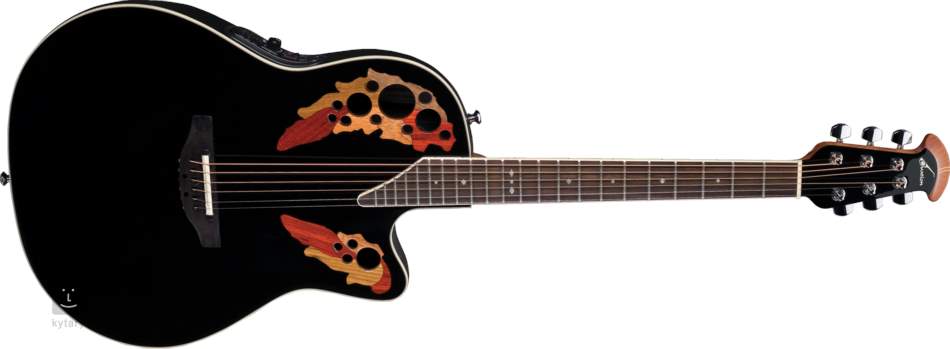
An electro-acoustic guitar will sound the same as an acoustic guitar of its same characteristics when unplugged. There are no tonal differences between them since their construction is almost the same, and they only differ on the small incorporation of pickups in the bridge and a preamp.
Those subtle incorporations in the mass of the body of an electro-acoustic might affect resonance slightly, but It would be almost impossible to hear, even if you could compare between 2 exactly similar instruments.
As I said before, there might be electro-acoustic guitars designed solely to be played through an amp, which have an awful acoustic tone. These instruments clearly will not sound the same as a traditional acoustic when unplugged.
Can I transform an acoustic guitar into an electro-acoustic?
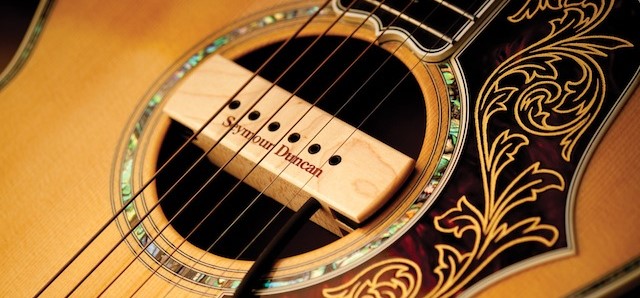
You can transform an acoustic guitar into an electro-acoustic by installing an acoustic pickup system in your guitar. You could opt for the traditional electro-acoustic system with piezo pickups and a preamp. Alternatively, you could choose a passive sound hole pickup, which will be an easier mod.
To install the piezo system you would need some professional work and some destructive work done on your guitar.
The passive pickup alternative is simpler and completely reversible.
Should you learn to play the acoustic guitar before the electric guitar?
You don’t need to learn the acoustic before getting an electric guitar. Actually starting with an electric could be easier technique-wise. However, the simplicity of an acoustic guitar tends to be better for beginners since they don’t have to worry about amp settings, volumes, cables, and signal chain.
However, there are no rules set in stone for learning the guitar or any other musical instrument. You should learn to play whichever instrument makes you happier. All will require almost the same amount of time to master.

Hello there, my name is Ramiro and I’ve been playing guitar for almost 20 years. I’m obsessed with everything gear-related and I thought it might be worth sharing it. From guitars, pedals, amps, and synths to studio gear and production tips, I hope you find what I post here useful, and I’ll try my best to keep it entertaining also.



